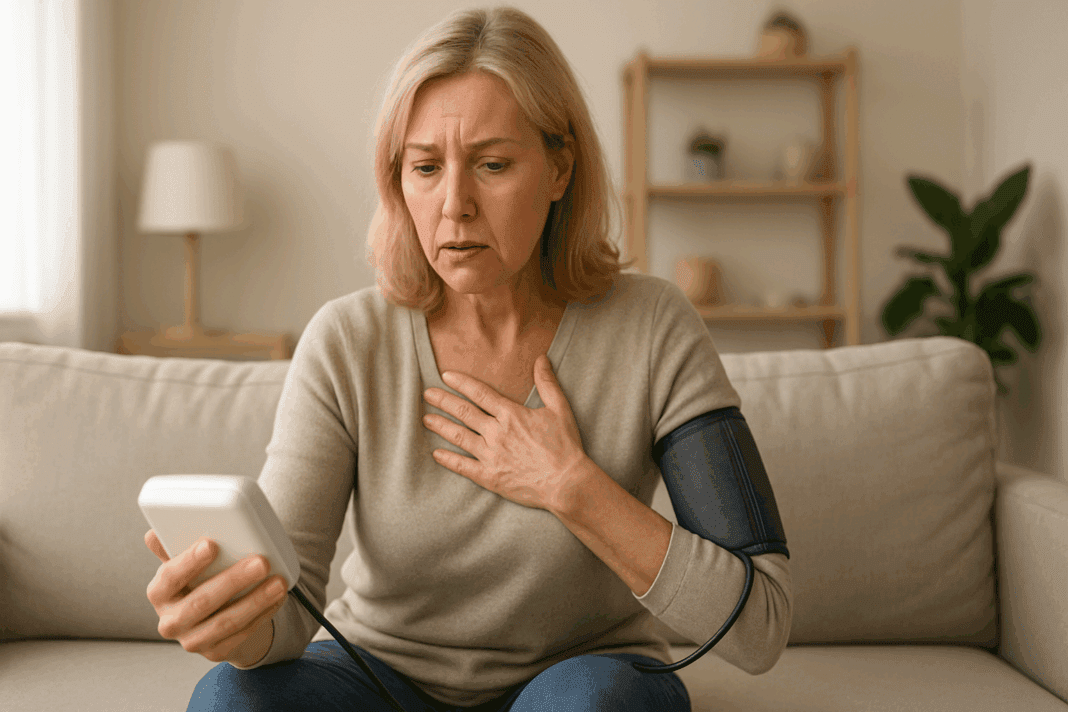High blood pressure, or hypertension, is often called the “silent killer” because it can creep up with little to no warning—sometimes resulting in dangerous consequences before one even realizes something is wrong. Yet, for many, hypertension doesn’t stay hidden. In some cases, it appears with a sudden surge that can feel dramatic and overwhelming. When blood pressure spikes unexpectedly, people are left wondering: What does high blood pressure feel like? What causes a sudden spike in blood pressure? And how can we distinguish normal fluctuations from a medical emergency? These questions are not just important—they can be life-saving.
In this article, we will explore the intricacies of sudden high blood pressure, unravel what hypertension feels like, especially in women, and provide guidance on how to recognize the signs of blood pressure problems before they escalate. By taking a closer look at what causes blood pressure to rise suddenly and what symptoms are worth your immediate attention, we aim to provide expert insight grounded in medical evidence and enhanced by practical understanding.
You may also like: Sudden Spikes in Blood Pressure: What Can Cause a Sudden Increase and When to Seek Medical Attention
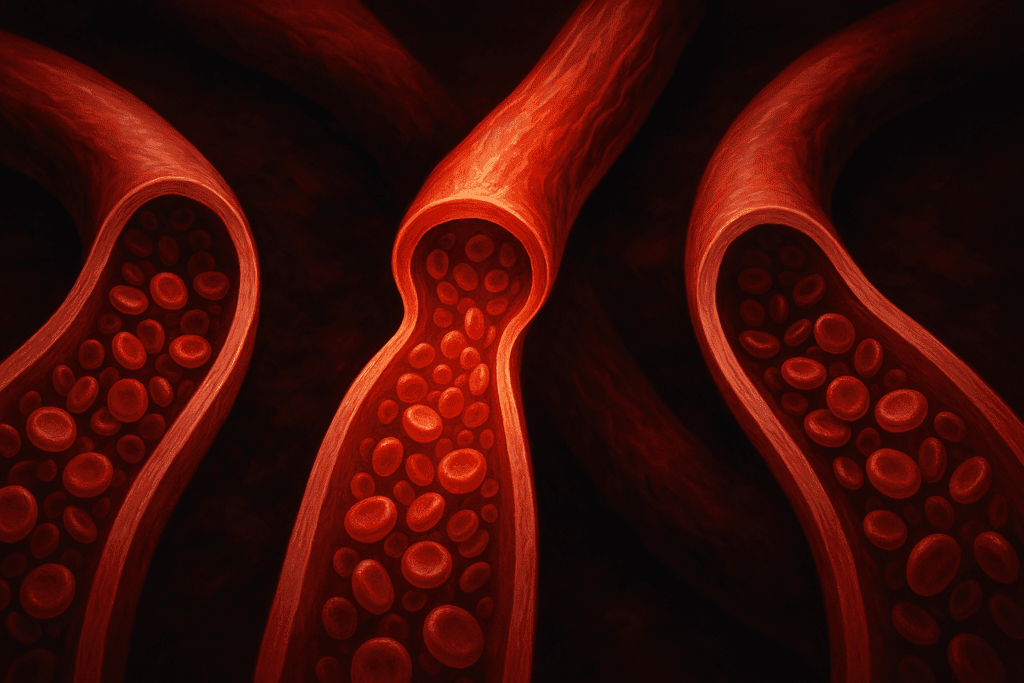
Understanding Blood Pressure and Hypertension
To understand what sudden high blood pressure means, it’s essential first to understand blood pressure itself. Blood pressure is the force exerted by circulating blood against the walls of the arteries. It is measured using two values: systolic pressure, which occurs when the heart beats, and diastolic pressure, measured when the heart is at rest between beats. A typical healthy blood pressure reading is around 120/80 mmHg. When readings consistently exceed 130/80 mmHg, a diagnosis of hypertension is made.
Hypertension is a chronic condition that, if left untreated, can lead to serious health complications such as heart attack, stroke, kidney damage, and vision loss. While most people associate high blood pressure with long-term progression, it can also present suddenly. This sudden increase in blood pressure—known as a hypertensive urgency or emergency depending on severity—demands immediate medical attention.
One of the more perplexing aspects of hypertension is that it can be symptomless. This is why many ask: can you feel hypertension? In many cases, no, but when symptoms do arise, especially during blood pressure spikes, they can be intense and alarming.
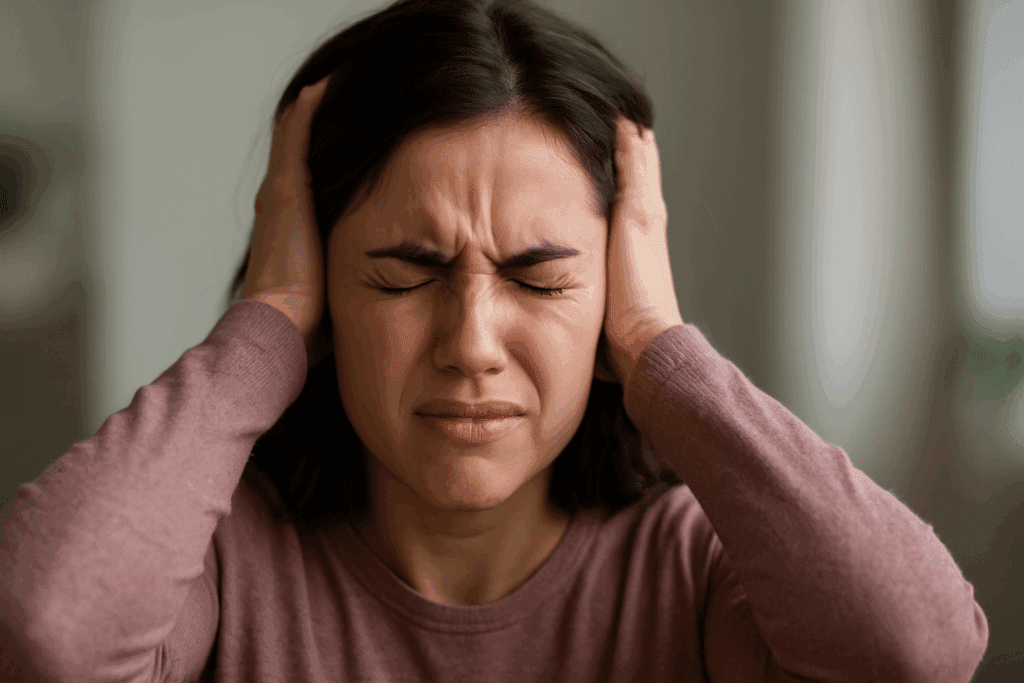
What Does High Blood Pressure Feel Like?
While hypertension often goes unnoticed, there are times when the body reacts strongly to elevated blood pressure levels. People frequently wonder what does high blood pressure feel like, and the answer can vary based on how sudden and severe the increase is. Common sensations associated with blood pressure spikes include headaches—particularly at the back of the head—chest discomfort, shortness of breath, and dizziness.
Some individuals report feeling a pounding in their chest, neck, or ears. Others describe a sense of anxiety or restlessness that accompanies the physical symptoms. In cases where blood pressure readings rise to dangerously high levels, such as 180/120 mmHg or higher, symptoms can escalate to include vision changes, confusion, nausea, or nosebleeds.
These physical cues can provide a valuable warning sign. Still, they should never replace regular monitoring, as some may not experience any symptoms at all. In fact, random high blood pressure can occur without any visible signs, making routine checks a crucial part of preventive care. Recognizing what high BP feels like, however, may help people respond more promptly during an episode of sudden high blood pressure.

Signs of High Blood Pressure in Women
There are important differences in how hypertension presents in women compared to men. Hormonal fluctuations throughout life—especially during pregnancy, menopause, and menstruation—can make women more vulnerable to changes in blood pressure. Consequently, recognizing the signs of high blood pressure in women requires a gender-specific lens.
Women may experience more subtle or atypical symptoms during blood pressure spikes. These may include fatigue, palpitations, anxiety, or swelling in the hands and feet. Some may notice difficulty sleeping or experience headaches that feel different from usual migraines. These symptoms are not always immediately connected to cardiovascular health, leading to delays in diagnosis or treatment.
Understanding what does high blood pressure feel like for a woman becomes vital, particularly during vulnerable life stages. For instance, preeclampsia—a pregnancy complication characterized by high blood pressure—can be life-threatening and often begins without noticeable symptoms. Similarly, postmenopausal women may see a rise in blood pressure due to changes in estrogen levels, which can impact vascular function.
Healthcare providers should maintain a high index of suspicion for symptoms of hypertension in women, even when blood pressure readings are within borderline ranges. Empowering women with knowledge about how blood pressure spikes manifest uniquely can lead to earlier detection and better health outcomes.
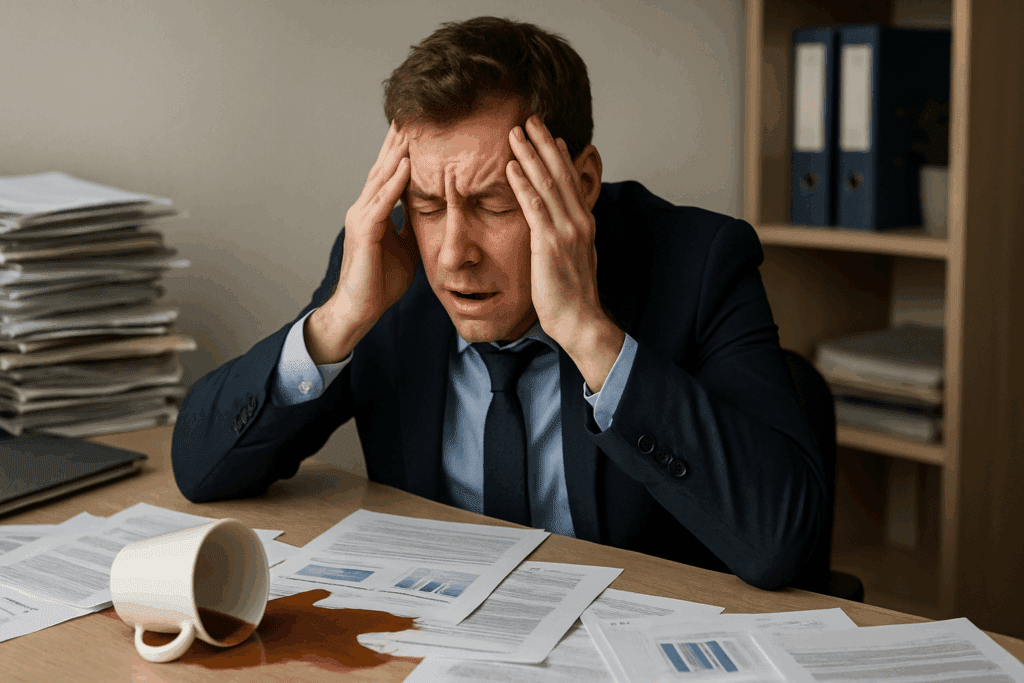
What Causes Blood Pressure to Spike Suddenly?
When someone experiences a sudden spike in blood pressure, it is natural to question what caused the surge. What can cause blood pressure to spike suddenly varies widely and can include both physiological and psychological triggers. Acute stress, for instance, is one of the most common culprits. During stressful events, the body releases adrenaline, which causes the heart to beat faster and blood vessels to constrict, raising blood pressure rapidly.
Other common contributors include excessive caffeine or alcohol intake, smoking, dehydration, and lack of sleep. Medical conditions such as kidney disease, adrenal gland tumors, and sleep apnea can also precipitate sudden high blood pressure. In some cases, certain medications—including decongestants, NSAIDs, and birth control pills—can cause temporary high blood pressure spikes.
Dietary factors also play a role. A high-sodium meal can trigger a sudden increase in blood pressure, particularly in salt-sensitive individuals. This often raises the question: what causes blood pressure to rise suddenly after eating? The answer lies in the way sodium affects water retention and vascular tone, which can contribute to elevated readings shortly after a meal.
In rare cases, a sudden onset of high blood pressure may be due to a hypertensive emergency, a condition where severely elevated blood pressure results in damage to organs like the heart, brain, or kidneys. This is a medical crisis that requires immediate intervention. Understanding what causes a sudden spike in blood pressure empowers individuals to manage lifestyle factors and seek medical attention promptly when needed.
Recognizing a Sudden Surge in Blood Pressure
How can someone tell if they’re experiencing a sudden surge in blood pressure? The challenge is that these episodes are not always obvious. Nonetheless, people often report certain red flags during such events. Blood pressure spikes may present as sudden dizziness, visual disturbances, chest tightness, or intense anxiety. These symptoms may appear abruptly and without clear cause.
For those who monitor their blood pressure at home, a reading of 150/100 mmHg or higher—especially when accompanied by symptoms—should not be ignored. While a single elevated reading does not necessarily indicate chronic hypertension, it may point to an acute issue requiring medical evaluation.
Understanding what a sudden increase in blood pressure feels like is essential. Individuals may feel flushed, sweaty, or have trouble focusing. Some describe a throbbing sensation in the head or experience heart palpitations that seem disproportionate to their level of activity or stress. Even without symptoms, a reading that indicates a sudden rise in blood pressure should prompt action.
These moments can be frightening, and many find themselves wondering, “Why is my blood pressure suddenly high?” The answer isn’t always simple, but knowing your personal risk factors and tracking patterns can reveal helpful insights. Whether the spike is tied to stress, food, medication, or an underlying condition, consistent monitoring remains a cornerstone of prevention.
Can Hypertension Be Temporary?
Many individuals who experience blood pressure fluctuations ask whether hypertension can be temporary. The answer is both yes and no. While chronic hypertension is a long-term medical condition, temporary high blood pressure—sometimes called transient or situational hypertension—can occur in response to specific triggers. These include acute stress, physical exertion, or the use of certain substances.
What can cause temporary high blood pressure may be as innocuous as a trip to the doctor’s office. Known as white coat hypertension, this condition refers to elevated readings in clinical settings due to anxiety. Once the individual leaves the office, their blood pressure returns to normal. In such cases, the rise is indeed temporary, though repeated occurrences may warrant closer monitoring.
Other temporary contributors include stimulant medications, certain dietary choices, dehydration, and even pain. Infections, fever, and inflammation can also cause temporary elevations in blood pressure. The key difference lies in persistence. Temporary spikes may resolve on their own, whereas sustained elevations require lifestyle modifications or medical treatment.
While it’s reassuring to know that some instances of blood pressure elevation are reversible, it’s important not to dismiss repeated spikes as harmless. Random high blood pressure episodes can still put strain on the heart and blood vessels, particularly if they happen frequently. Regular tracking helps determine whether these spikes are isolated events or indicative of an emerging problem.
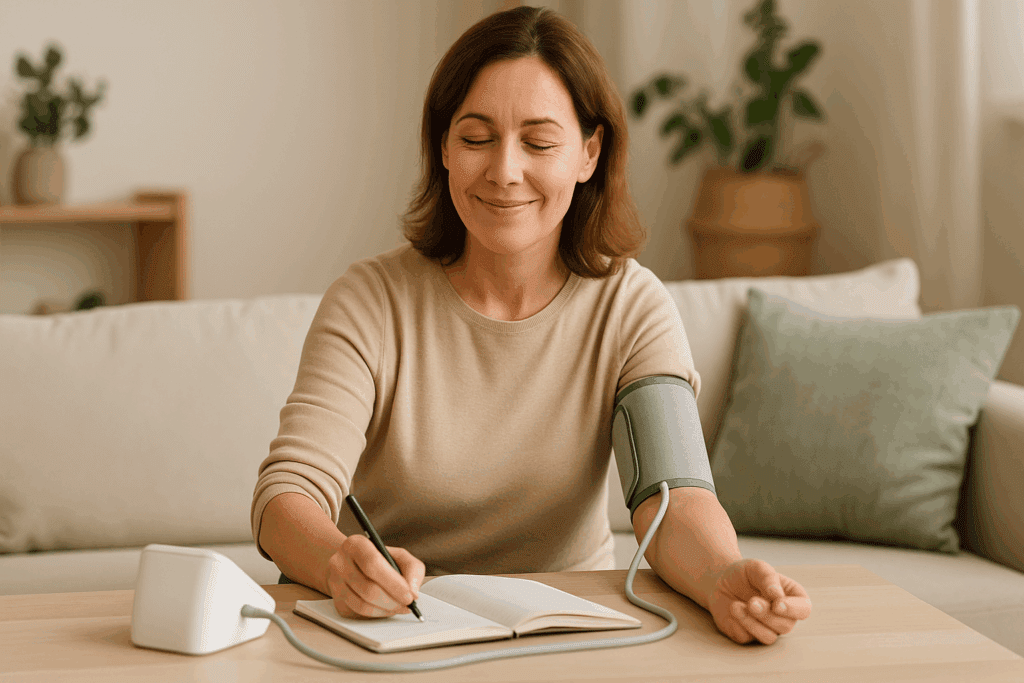
Managing and Monitoring Sudden High Blood Pressure
For individuals who have experienced a sudden rise in blood pressure, proactive management becomes a priority. Knowing what causes blood pressure to rise suddenly can help guide choices around diet, exercise, stress management, and medication use. For example, reducing sodium intake, increasing physical activity, and managing weight are proven strategies for improving blood pressure control.
Monitoring at home using an automatic blood pressure cuff provides valuable data. It allows individuals to detect blood pressure spikes early and observe how lifestyle changes affect their readings. When keeping track, it’s important to note the time of day, recent activities, and any symptoms present. This information can help healthcare providers make accurate diagnoses and treatment plans.
Stress reduction techniques such as deep breathing, mindfulness, and yoga have also been shown to help stabilize blood pressure. Sleep hygiene, limiting caffeine and alcohol, and staying hydrated are other simple yet effective steps. For those already on medication, adhering to prescriptions and communicating regularly with a healthcare provider is crucial.
It’s also helpful to recognize the emotional toll that unpredictable blood pressure episodes can take. Feelings of fear, anxiety, or uncertainty are common. Joining support groups or speaking with a counselor can provide reassurance and improve mental well-being. Managing sudden onset high blood pressure is not only about physical health—it’s about caring for the whole person.
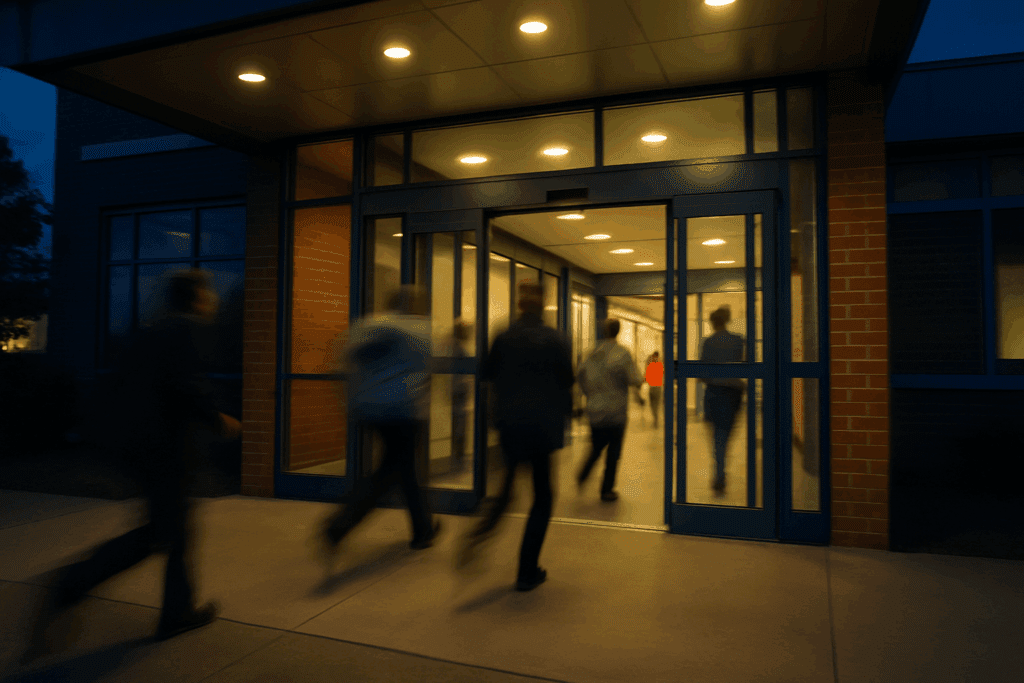
When to Seek Immediate Medical Attention
Not all blood pressure spikes require an emergency room visit, but knowing when to seek immediate help is critical. If a person experiences symptoms such as severe headache, chest pain, difficulty breathing, confusion, or vision loss alongside a high blood pressure reading, it may indicate a hypertensive crisis. In such situations, delaying care can have serious consequences.
Another red flag is a blood pressure reading of 180/120 mmHg or higher, especially if repeated. This level of elevation can cause damage to internal organs within a short period and must be treated as a medical emergency. In some cases, even a reading of 150/100 mmHg may warrant concern if accompanied by significant symptoms or if it represents a sharp increase from baseline levels.
Those wondering, “What would cause blood pressure to spike suddenly?” should also consider recent changes in health status, medication regimens, or lifestyle. Even events like travel, heat exposure, or altitude changes can affect blood pressure. If in doubt, contacting a medical professional for guidance is always the best course of action.
By recognizing the signs of blood pressure problems early—especially those unique to each individual—patients can avoid complications and protect their cardiovascular health. Timely action saves lives and ensures that transient spikes don’t evolve into chronic hypertension.
Frequently Asked Questions on Sudden High Blood Pressure
How does high blood pressure affect daily energy levels and mental clarity?
Although high blood pressure is often seen as a silent condition, it can subtly impair both physical energy and cognitive sharpness. People frequently ask what does high blood pressure feel like when it interferes with everyday functioning, and the answer often involves persistent fatigue, brain fog, and difficulty concentrating. These symptoms are more common when blood pressure spikes without warning, as the body diverts energy to manage vascular stress. A sudden rise in blood pressure can also cause transient cognitive issues, such as forgetfulness or mental exhaustion, particularly in high-stress environments. Understanding these manifestations as a sign of blood pressure problems can lead to earlier interventions and improved quality of life.
Can emotional trauma trigger sudden high blood pressure in otherwise healthy people?
Yes, emotional trauma is one of the lesser-known yet powerful triggers for sudden high blood pressure, even in individuals without a history of hypertension. The body responds to trauma by releasing a cascade of stress hormones like cortisol and adrenaline, which constrict blood vessels and accelerate the heart rate. This physiological response may result in a sudden spike in blood pressure, especially if unresolved emotional stress persists. What can cause blood pressure to spike suddenly in these scenarios is often overlooked, as the psychological root may not be immediately evident. Addressing emotional well-being is a crucial aspect of cardiovascular care, especially in individuals experiencing random high blood pressure readings with no apparent physical cause.
What does high blood pressure feel like for a woman dealing with hormonal imbalances?
Hormonal changes can significantly influence what high blood pressure feels like for a woman. Women with fluctuating estrogen and progesterone levels—such as those in perimenopause or with polycystic ovary syndrome (PCOS)—may experience blood pressure spikes accompanied by mood swings, palpitations, or a heightened sensitivity to stress. These symptoms of hypertension in women are often under-recognized, as they can mimic hormonal or emotional conditions. This interplay between endocrine and vascular systems highlights why signs of high blood pressure in women may require a more integrative diagnostic approach. Recognizing that a sudden increase in blood pressure might be linked to hormonal shifts enables more precise, personalized care.
Are there occupational risks that increase the likelihood of a sudden spike in blood pressure?
Yes, occupational factors play a surprisingly large role in triggering sudden blood pressure spikes. High-stress professions—such as emergency responders, air traffic controllers, or even high-stakes corporate roles—can lead to frequent blood pressure spikes due to prolonged exposure to adrenaline-inducing scenarios. Noise pollution, shift work, and poor work-life balance are additional contributors to sudden onset high blood pressure. Understanding what causes blood pressure to rise suddenly in these work settings can inform preventive workplace strategies, such as scheduled relaxation periods or wellness interventions. Employers may benefit from implementing policies that help reduce the likelihood of a sudden surge in blood pressure among staff.
How can changes in altitude impact blood pressure readings in hypertensive individuals?
For individuals with existing or borderline hypertension, travel to higher elevations can cause a sudden rise in blood pressure due to reduced oxygen levels and changes in vascular resistance. At altitude, the body works harder to oxygenate tissues, which can lead to an increased heart rate and constricted blood vessels—both contributing factors to sudden increases in blood pressure. While healthy individuals may adapt quickly, those with a history of blood pressure spikes may experience complications such as dizziness, chest pressure, or headaches. Monitoring blood pressure at different altitudes can help determine if such environmental changes are a trigger. It’s also a good practice to consult a healthcare provider before traveling to avoid unexpected hypertensive episodes in unfamiliar environments.
Is it possible to misinterpret symptoms of hypertension as anxiety or panic attacks?
Absolutely, and this misinterpretation is more common than most people realize. What does high BP feel like during a spike can closely resemble a panic attack—rapid heartbeat, sweating, lightheadedness, and a feeling of doom. However, the underlying physiological drivers are different. Panic attacks are primarily neurological, while sudden high blood pressure originates in the cardiovascular system. For women especially, these overlapping symptoms complicate the recognition of what hypertension feels like, since the signs of high blood pressure in women are often chalked up to emotional or hormonal issues. Differentiating between anxiety and hypertension is critical for accurate diagnosis and treatment.
What are some overlooked lifestyle habits that might cause temporary high blood pressure?
Aside from the usual suspects like sodium and alcohol, several everyday habits can lead to what causes temporary high blood pressure. For instance, chronic sleep deprivation disrupts circadian regulation of vascular tone, while excessive screen time—especially late at night—can interfere with melatonin production and raise nighttime blood pressure. Even something as simple as regularly skipping breakfast may contribute to a sudden spike in blood pressure due to increased sympathetic nervous system activity in the morning. Identifying these subtle habits gives patients actionable ways to reduce random high blood pressure episodes. A holistic review of lifestyle—not just diet—is often needed to fully understand what causes BP to rise suddenly.
Can wearable health tech help detect sudden blood pressure changes in real time?
Yes, emerging wearable technologies are revolutionizing how we detect and manage sudden changes in blood pressure. Some advanced smartwatches and wearable cuffs now offer continuous blood pressure monitoring, allowing users to capture a sudden surge in blood pressure as it happens. This innovation is particularly useful for identifying patterns in what causes blood pressure to rise suddenly, including both physical and emotional triggers. While not a replacement for clinical-grade equipment, these devices provide real-time insight that can prompt timely lifestyle changes or medical consultations. As technology advances, expect wearables to become essential tools in managing both chronic hypertension and unpredictable blood pressure spikes.
Why is blood pressure 150/100 concerning even without symptoms?
Even in the absence of symptoms, blood pressure at or above 150/100 mmHg can indicate a sudden increase in high blood pressure that puts the cardiovascular system under acute stress. This level of elevation may not immediately cause noticeable symptoms, which is why many ask, “can you feel hypertension?” The truth is, not always. But the absence of obvious discomfort does not equate to safety. Repeated or prolonged episodes of blood pressure suddenly high at these levels can contribute to silent organ damage, particularly in the kidneys, eyes, and heart. Therefore, it’s essential to take these readings seriously and not wait for physical signs to appear before seeking medical guidance.
What role does genetics play in sudden increases in blood pressure?
Genetics can significantly influence one’s predisposition to sudden increases in blood pressure, even among individuals who maintain healthy lifestyles. If close family members experience blood pressure spikes, there’s a higher likelihood you may too—particularly in response to shared environmental or emotional stressors. What would cause blood pressure to spike suddenly in one person may not affect another, depending on genetic sensitivity to stress hormones or salt intake. Genetic testing and family history assessments can offer valuable insights into why is my blood pressure suddenly high despite taking precautions. Combining genetic awareness with lifestyle vigilance is key to managing unpredictable hypertensive episodes effectively.
Final Thoughts on Sudden Blood Pressure Spikes and Their Symptoms
Understanding what high blood pressure feels like, especially during a sudden spike, equips individuals with the tools they need to protect their long-term health. From recognizing the signs of high blood pressure in women to identifying what can cause blood pressure to spike suddenly, knowledge becomes the first line of defense. These insights also serve to demystify what a sudden surge in blood pressure feels like and when it demands medical attention.
Whether it’s a single episode of blood pressure suddenly high or a pattern of random high blood pressure readings, tracking and managing these changes with the help of healthcare providers ensures better outcomes. For many, the answer to “why is my BP suddenly high?” lies in everyday habits, emotional stress, or underlying conditions—each manageable when addressed with the right strategies.
Empowered by awareness and supported by science, patients can better navigate the complexities of hypertension. By blending experience with expert guidance, this article has aimed to provide a trustworthy, medically grounded understanding of a condition that affects millions. The key takeaway? Pay attention, stay informed, and never hesitate to seek help when your heart and health need it most.
hypertension symptoms checklist, cardiovascular health tips, managing blood pressure naturally, high blood pressure and stress, female heart health, hypertension risk factors, vascular health in women, blood pressure monitoring tools, stress-induced hypertension, early warning signs of stroke, adrenal response and blood pressure, lifestyle changes for heart health, chronic stress and the heart, women’s cardiovascular symptoms, blood pressure and hormonal changes, circadian rhythm and hypertension, silent signs of heart disease, wearable health monitors, heart attack warning signs, understanding systolic and diastolic readings
Further Reading:
What are some causes of sudden high blood pressure?


